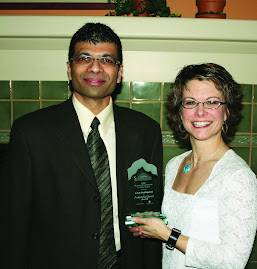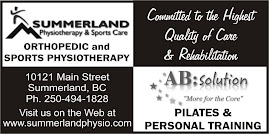Summerland Physiotherapy and Sports Care has several options available for
Gardeners to stay pain free during the gardening season.
Physiotherapy:
Pilates:
Testimonials:
Kathy – “This is the first year I haven’t suffered from Gardener’s Back; from all of the annual raking, digging, and weeding. Since starting Pilates in January, my garden clean up is pain free.”
Dawn – “I have nothing but praise for your program. Pilates has definitely helped me in terms of strengthening and stabilizing my lower back. Gardening, tennis, golf; any activity I enjoy is better. I rarely have any back issues now, and have not had any major episodes since starting Pilates in the Fall. Thanks!”
Natalie – “I can attest to the fact that exercising (especially with something like Pilates that stresses the muscular control) helps avoid numerous aches and pains – especially for someone my age and having problems like Osteoporosis.”
Massage Therapy:
Some Benefits Of Massage:
GARDEN SAFETY TIPS…
Find your comfort zone – a comfortable position for your body to work in.
Avoid uncomfortable positions by:
Moving with your work. Keep your work in front of you and close to your body to avoid reaching and twisting.
Using the appropriate tools to assist you.
Take a class on how to effectively use your “core” muscles when gardening, to reduce strain on the back and joints.
Listen to what your body is telling you!! Aches and pains indicate you have overdone it.
TOOLS OF THE TRADE…
Match the size of the tool handle to your hand.
Hold your tools in a loose comfortable grip. Over gripping can lead to injury.
Use tools to your benefit, to reduce the workload.
Use a wheelbarrow or wagon to transport supplies.
Use power tools for repetitive work.
Use an extended handle to reduce the reach.
Keep cutting and digging tools sharp.
Using a low, padded kneeling stool, with side handles to help you stand up helps to avoid strain on your knees and low back.
Use knee pads or a foam pad for kneeling.
Wrap a slippery handle with sports tape to improve your grip on it.
PACING YOURSELF…
Treat gardening seriously. Begin each gardening session by warming up for 8-10 minutes, by marching in place, or going for a walk. Stretch the most frequently used muscles in the upper and lower body, so they become more flexible and able to handle the tasks at hand. Stretching after finishing your work will help to relax muscles and reduce soreness later.
Ease off or quit before you get tired. Most injuries occur when you are trying to fit on “one more thing”. If you feel stiff, sore or experience pain, use ice on the affected area for 15 – 20 minutes. If the pain doesn’t subside, or increases, stop gardening and consult with your healthcare professional.
Spread heavy lifting and digging tasks over a week, instead of a weekend.
Spread major projects throughout spring, summer and fall. Take time to recover between projects.
Rotate activities to use different muscle groups. By altering your movement patterns frequently, you will minimize the repetitive stress placed on your spine and adjoining muscles.
Take breaks every 30 to 60 minutes to reduce injury. Take a few minutes to stretch, grab a drink, and plan your next activity.
















No comments:
Post a Comment